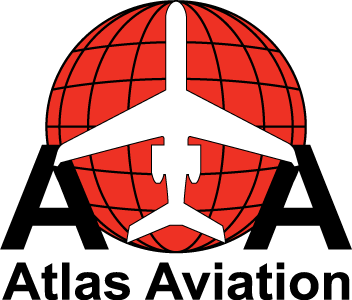Commercial Pilot Certification
The Commercial Pilot Certificate (CPL) is your gateway to flying as a professional. With this certification, you can be paid for your flying skills — whether as a flight instructor, charter pilot, corporate pilot, or on the pathway to the airlines. At Atlas Aviation in Tampa, we offer structured, professional training in modern aircraft with FAA-certified instructors to help you achieve your aviation career goals.
Prerequisites
To begin Commercial Pilot training, you must:
-
Be at least 18 years old.
-
Hold at least a 2nd Class FAA Medical Certificate.
-
Hold a Private Pilot Certificate.
-
Be able to read, speak, write, and understand English.
Training Hours
FAA minimums for the Commercial Pilot Certificate are:
-
250 total flight hours (Part 61 training)
-
100 hours as Pilot-in-Command (PIC)
-
50 hours cross-country time
-
20 hours dual instruction (including instrument, complex aircraft, and night training)
-
10 hours solo flight (cross-country and maneuvers)
-
👉 Average training time: Many students graduate with 260–280 hours, depending on proficiency.
Costs
Commercial training costs depend heavily on your flight time before starting. Students beginning immediately after earning a Private Pilot often log time-building flights to reach 250 hours. Typical breakdown:
-
Aircraft rental (Cessna 172, complex or high-performance aircraft): $XXX/hour wet
-
Instructor time: $XXX/hour
-
Ground school: $XXX (online or classroom)
-
Books, materials, and supplies: approx. $400
-
FAA written exam fee: $175
-
FAA checkride (practical exam) fee: $700–$900 (paid to examiner)
👉 Estimated total cost: $25,000 – $35,000, depending on prior hours, aircraft flown, and training pace.
Examinations
To earn your Commercial Pilot Certificate, you must complete two FAA tests:
-
Knowledge Test
-
Covers advanced aerodynamics, regulations, performance, weight and balance, and systems.
-
Multiple-choice format, minimum passing score 70%.
-
-
Practical Test (Checkride) with a Designated Pilot Examiner (DPE)
-
Oral exam: 2+ hours, including flight planning, systems knowledge, and performance calculations.
-
Flight test: 1.5–2 hours, demonstrating precision maneuvers, complex aircraft handling, emergency procedures, and cross-country navigation.
-
Benefits of a Commercial Pilot Certificate
-
Earn Income Flying – Legally get paid to fly, opening career opportunities.
-
Work as a Flight Instructor (with additional CFI rating) – Teach others and build hours toward ATP.
-
Pathway to Airlines – Essential milestone for those pursuing professional aviation careers.
-
Advanced Flying Skills – Gain mastery in precision maneuvers, systems, and performance management.
-
Flexibility & Opportunities – Charter, corporate, sightseeing, banner towing, and other commercial flying jobs become available.
